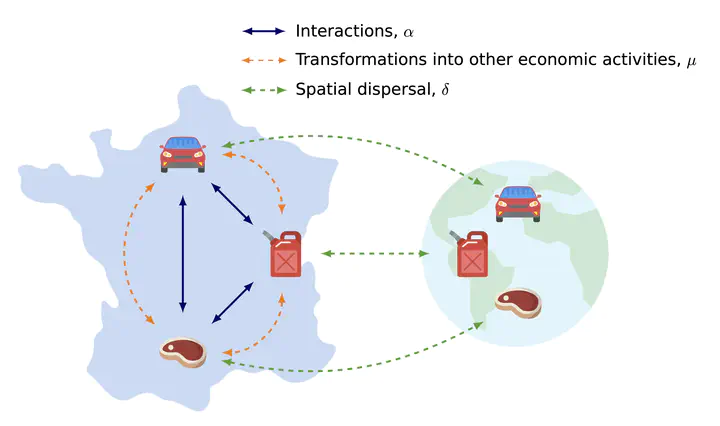Processes analogous to ecological interactions and dispersal shape the dynamics of economic activities
 General dynamic community model used to characterise the dynamics of economic activities, capturing interactions between the activities, the spatial dispersal of the activities, and their transformations into other economic activities.
General dynamic community model used to characterise the dynamics of economic activities, capturing interactions between the activities, the spatial dispersal of the activities, and their transformations into other economic activities.
Abstract
The processes of ecological interactions, dispersal and mutations shape the dynamics of biological communities, and analogous eco-evolutionary processes acting upon economic entities have been proposed to explain economic change. This hypothesis is compelling because it explains economic change through endogenous mechanisms, but it has not been quantitatively tested at the global economy level. Here, we use an inverse modelling technique and 59 years of economic data covering 77 countries to test whether the collective dynamics of national economic activities can be characterised by eco-evolutionary processes. We estimate the statistical support of dynamic community models in which the dynamics of economic activities are coupled with positive and negative interactions between the activities, the spatial dispersal of the activities, and their transformations into other economic activities. We find strong support for the models capturing positive interactions between economic activities and spatial dispersal of the activities across countries. These results suggest that processes akin to those occurring in ecosystems play a significant role in the dynamics of economic systems. The strength-of-evidence obtained for each model varies across countries and may be caused by differences in the distance between countries, specific institutional contexts, and historical contingencies. Overall, our study provides a new quantitative, biologically inspired framework to study the forces shaping economic change.